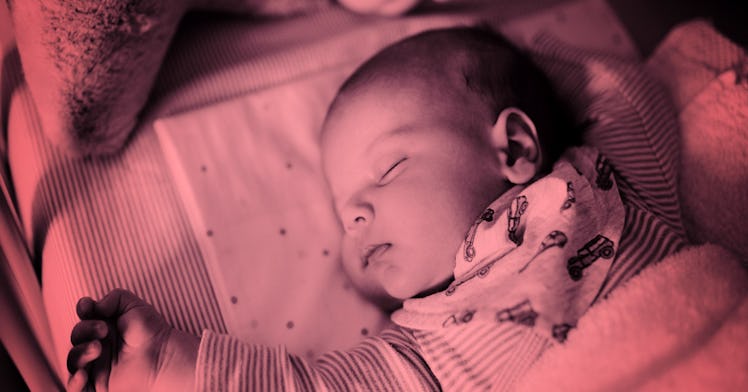How to Choose The Best Music to Put Baby to Sleep
Music can cause more sleep problems than it solves, but if incorporated into a sleep ritual, the best choices are probably best described as elevator music.

Babies need to learn everything, including how to fall asleep at a decent hour. Some newborns may nod off easily, but for others, baby sleep music may be just what they to quiet down for bed. Music can be an important part of sleep rituals, and as such a pivotal part of sleep training, giving obvious and soothing cues signifying that bedtime has arrived. That said, baby sleep music is a tool that should be used specifically and carefully. The wrong kind of music used inappropriately can actually cause more problems than it solves. The key is to end the music before the kid falls asleep and make it as boring as possible.
Dr. Lynelle Schneeberg is a licensed clinical psychologist, a clinical professor at Yale School of Medicine, and the director of the Behavioral Sleep Program at Connecticut Children’s Medical Center. In her experience, leaving babies to drift off to the wrong kind of music, or even any music, can work against parents. “I actually think that music is not so useful to help a baby sleep,” explains Schneeberg. “Music, if used every night, will become a ‘sleep onset association’ for the baby, and then the baby comes to depend on this music for the transition into sleep. Then, no matter where the baby sleeps – at his or her grandmother’s, at daycare, at a hotel and so on – he or she may need it there, too, so it has to be available all the time.”
Understanding Baby Sleep Music
- Music can become a crutch – music can help a baby fall asleep, but if the child becomes dependent on it, they don’t have a lot of options when they are trying to fall asleep away from home.
- Robust sleepers are sound sleepers – it’s possible to train a baby to sleep under a variety of conditions, with typical ambient noise and with very few sleep crutches.
- Sleep rituals can incorporate music – sleep rituals help signal to a baby that bedtime is here. Lowered lights and music can help ease this tradition.
- Elevator music preferred – dynamic music arouses the senses by design. If parents incorporate music into the sleep ritual, soft lullabies, soothing classic music, or ‘spa music’ is a better choice.
- White noise blocks sound better – if the ambient noise is too distracting to a baby, parents can block it out with a sound machine. One that runs continuously is a better option than one that runs on a timer.
Inappropriate sleep onset associations are also known a sleep crutches or sleep props. They are stimuli or conditions that babies cannot replicate themselves, and so when they awake in the night, they lack the tools to help them relax and fall back asleep. Schneeberg advocates instead for teaching a baby to be a robust sleeper, able to sleep under a variety of condition with typical ambient noise and with very few sleep crutches.
That doesn’t mean music has no place at bedtime. Bedtime rituals are still important and they can incorporate music. “Some parents use music and lowered lights, for example, to mark the transition from family after-dinner time to bedtime-routine time,” Schneeberg says, though the wrong choice of music can stimulate a baby to wakefulness, making bedtime harder instead of easier.
“I’d recommend soft music with few or no changes in volume and tempo since any change might trigger an awakening,” she explains. “I think some kind of soft lullabies, or classical music, or ‘spa-type’ music would be just fine as part of the bedtime routine or ritual and then, ideally, turned off.”
If the ambient noise of a house is too much for a baby to cope with, parents may need to mask or block it. In that case, music may seem like a good option, but a white noise machine may be a more useful fit.
“If music is being used to block sound, I think a sound machine is probably a better choice since the sound provided by this machine is so consistent,” recommends Schneeberg. A sound machine that clicks off after a set period of time may also trigger an awakening, and if the baby is dependent open it to fall asleep, it may become another sleep crutch that keeps them awake in the middle of the night. So if a white noise machine is necessary, it should run continuously.
This article was originally published on